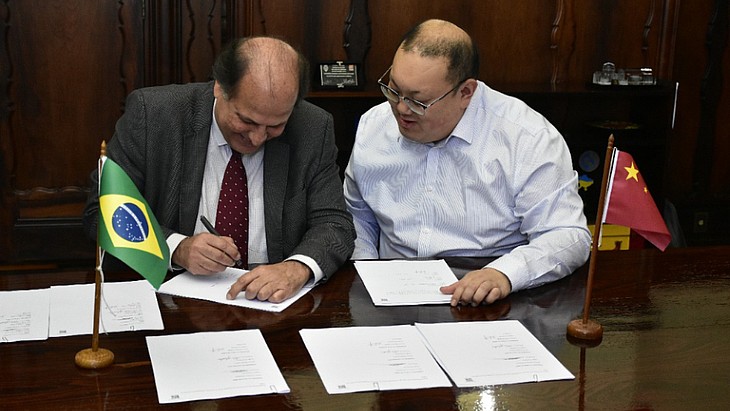The agreement "establishes the institutions' commitment to broad and continuous cooperation in the areas of waste treatment, transportation and disposal, radiological protection, and personnel training".
The National Nuclear Energy Commission (CNEN) said "both parties expressed interest in exchanging knowledge, conducting training, organising technical missions, and promoting educational initiatives that enhance the skills of Brazilian and Chinese specialists in the nuclear field. This cooperation will allow Brazil to access established practices used by China in modern facilities for the treatment and final disposal of radioactive waste".
CNEN President, Francisco Rondinelli Júnior, said: "We are creating opportunities for technological innovation, raising technical standards, and expanding national expertise in nuclear safety and environmental protection."
The agreement with China National Nuclear Corporation Overseas Ltd, part of China National Nuclear Corporation, does not involve any transfer of financial resources and "all cooperation will be guided by the expansion of technical capacities and the development of innovative solutions that can meet the current demands for radioactive waste management in both countries".
Brazil is in the process of developing the Centena (Centro Tecnológico Nuclear e Ambiental) Project, which CNEN says will be the first radioactive waste repository in Latin America. It will be a permanent storage solution for low- and medium-level radioactive waste material with a radioactive half-life limited to 30 years - as well as housing a technology centre for studies related to radioactive waste management. The goal is for it to be in operation by 2030.
Wilson Aparecido Parejo Calvo, Director of Research and Development at CNEN, said the cooperation would contribute to the "continuous advancement of the sector and to the construction of increasingly safe and sustainable solutions for the management of radioactive waste in the country", especially Centena.
Brazil and China have continuing links in the nuclear energy field. Last month, CNEN signed a separate MoU "to ensure the continuous and stable supply of radioisotopes used in areas vital to scientific and social development", with China Isotope & Radiation Corporation, also a subsidiary of China National Nuclear Corporation.







_15863.jpg)







